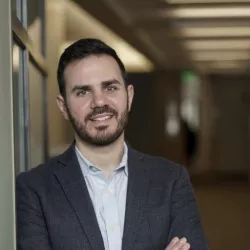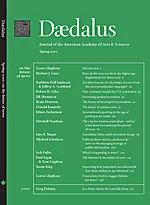David Rand is the Erwin H. Schell Professor and Professor of Management Science and Brain and Cognitive Sciences at MIT.
Bridging the fields of cognitive science, behavioral economics, and social psychology, David’s research combines behavioral experiments and online/field studies with mathematical/computational models to understand human decision-making. His work focuses on illuminating why people believe and share misinformation and “fake news”; understanding political psychology and polarization; and promoting human cooperation. He has published over 200 articles in peer-reviewed journals such Nature, Science, PNAS, the American Economic Review, Psychological Science, Management Science, New England Journal of Medicine, and the American Journal of Political Science, and his work has received widespread media attention.
David regularly advises technology companies such as Google, Meta/Facebook, and TikTok in their efforts to combat misinformation, and has provided testimony about misinformation to the US and UK governments. He has also written for popular press outlets including the New York Times, Wired, and New Scientist. He was named to Wired magazine’s Smart List 2012 of “50 people who will change the world,” chosen as a 2012 Pop!Tech Science Fellow, awarded the 2015 Arthur Greer Memorial Prize for Outstanding Scholarly Research, chosen as fact-checking researcher of the year in 2017 by the Poyner Institute’s International Fact-Checking Network, awarded the 2020 FABBS Early Career Impact Award from the Society for Judgment and Decision Making, and selected as a 2021 Best 40-Under-40 Business School Professor by Poets & Quants. Papers he has coauthored have been awarded Best Paper of the Year in Experimental Economics, Social Cognition, and Political Methodology.



